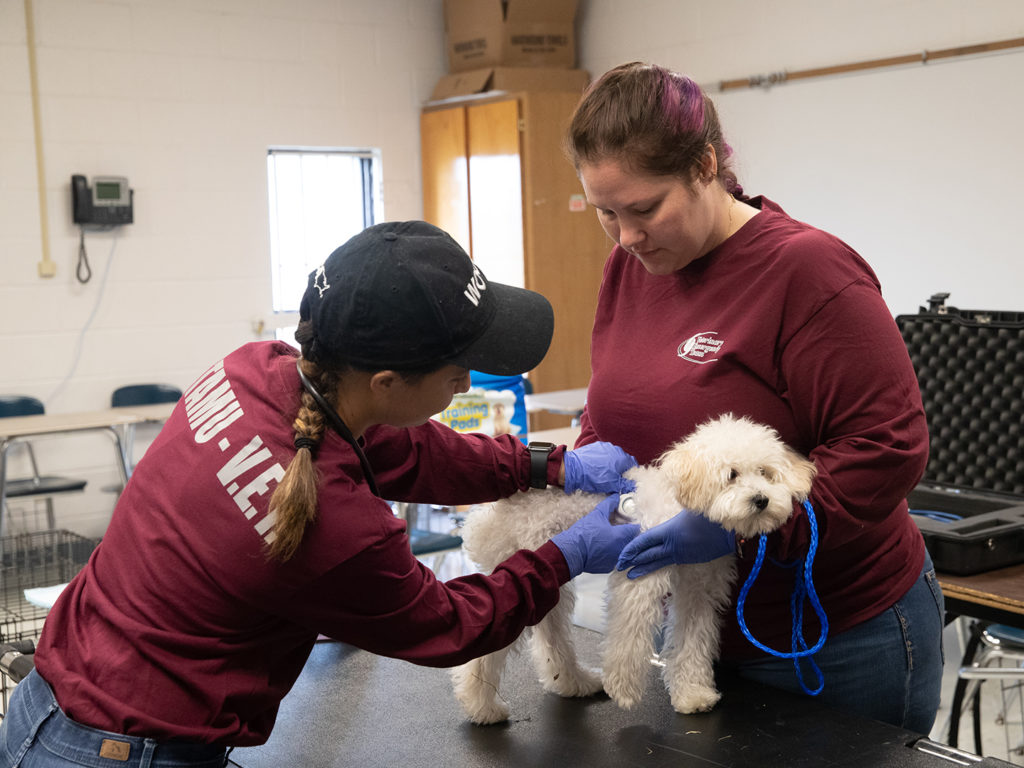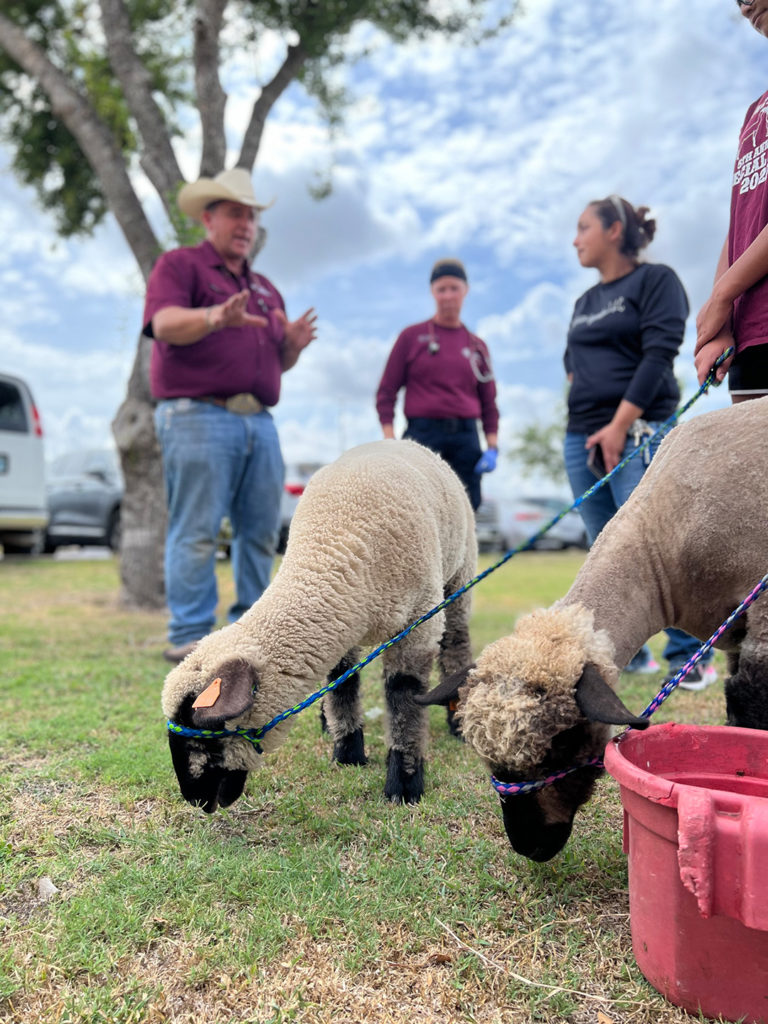Texas A&M Veterinary Emergency Team Treats Hundreds Of Animals At Operation Border Health Preparedness
Story by Aubrey Bloom, CVMBS Communications

The Texas A&M Veterinary Emergency Team (VET) saw 505 animals, including dogs, cats, rabbits, and even two lambs during its recent participation in Operation Border Health Preparedness (OBHP) in Raymondville, Texas.
OBHP, which was known as Operation Lone Star in previous years, is organized by the Texas Department of State Health Services and gives state and local groups a chance to practice setting up and operating the kind of health clinics that could be used in a disaster response situation while also providing services to the local community.
For a second year, the VET selected the Raymondville site, located at Raymondville Early College High School, because of the lack of nearby veterinarians.
“This is an area where we can really make a difference, even if we’re only here for one week,” said VET director Dr. Wesley Bissett. “It also gives us a chance to exercise the kind of operation we would have during a large-scale deployment like a hurricane response.”
Nora Flores, who drove in for the clinic from nearby Lyford with her dog Boo, said she was nervous at first but was reassured after talking with VET members on arrival. She even brought two more animals later in the week.
“I’m always worried about how my dog’s going to react, but everyone was so good. He went right with them,” she said. “I’m really appreciative that these services are being offered; it’s so great. To make an appointment with the veterinarian in the next county over can take months. I’m so thankful the team is here to provide this service.”
For residents like Shawn Stocks, of Weslaco, the clinic was a way to know pets like her dog Stella were getting high-quality care.

“This really helps. It’s expensive to take care of these pets, so I really appreciate the team doing this for us as a community, and I hope other people appreciate it and are saying thank you as well; everyone has been so awesome,” she said.
More than 75 team members—including Texas A&M College of Veterinary Medicine & Biomedical Sciences (VMBS) veterinarians, students, and staff; volunteers; and Texas A&M AgriLife Extension Disaster, Assessment, and Recovery agents—were on site throughout the week.
They were also joined by a veterinarian and veterinary technicians from Texas A&M University-Kingsville, members of the Lone Star Unmanned Aerial Systems Center of Excellence and Innovation at Texas A&M University-Corpus Christi, a veterinary student from Colorado State University, and officers from the Nebraska Extension and the Purdue Extension.
“This has truly been a team effort all week long,” Bissett said. “And those people weren’t just here to watch; we got them plugged into the team, and they were working as hard as anyone else and staying here with us as part of the team. Hopefully, this is an experience they’ll take back with them to improve their own disaster response capabilities.”
A number of people and organizations make the team’s involvement in OBHP possible. The Banfield Foundation’s donation of medical supplies were used throughout the week, and the evacuation trailer the foundation donated last year was used to keep animals comfortable during extremely high temperatures and a thunderstorm during the week. Additionally, funding from Texas A&M’s Association of Former Students supported the involvement of the veterinary students.
“This event wouldn’t be possible without supporters like the Banfield Foundation and the Association of Former Students,” Bissett said. “Supporting our involvement in Operation Border Health Preparedness is really an investment in the state of Texas. We learn so much during this week, especially since it’s right at the start of peak hurricane season, that will help us when we’re called to respond to real disasters.”
###
For more information about the Texas A&M College of Veterinary Medicine & Biomedical Sciences, please visit our website at vetmed.tamu.edu or join us on Facebook, Instagram, and Twitter.
Contact Information: Jennifer Gauntt, Director of VMBS Communications, Texas A&M College of Veterinary Medicine & Biomedical Sciences, jgauntt@cvm.tamu.edu, 979-862-4216


